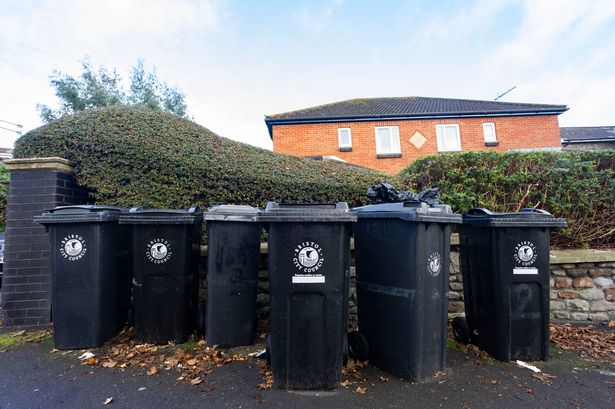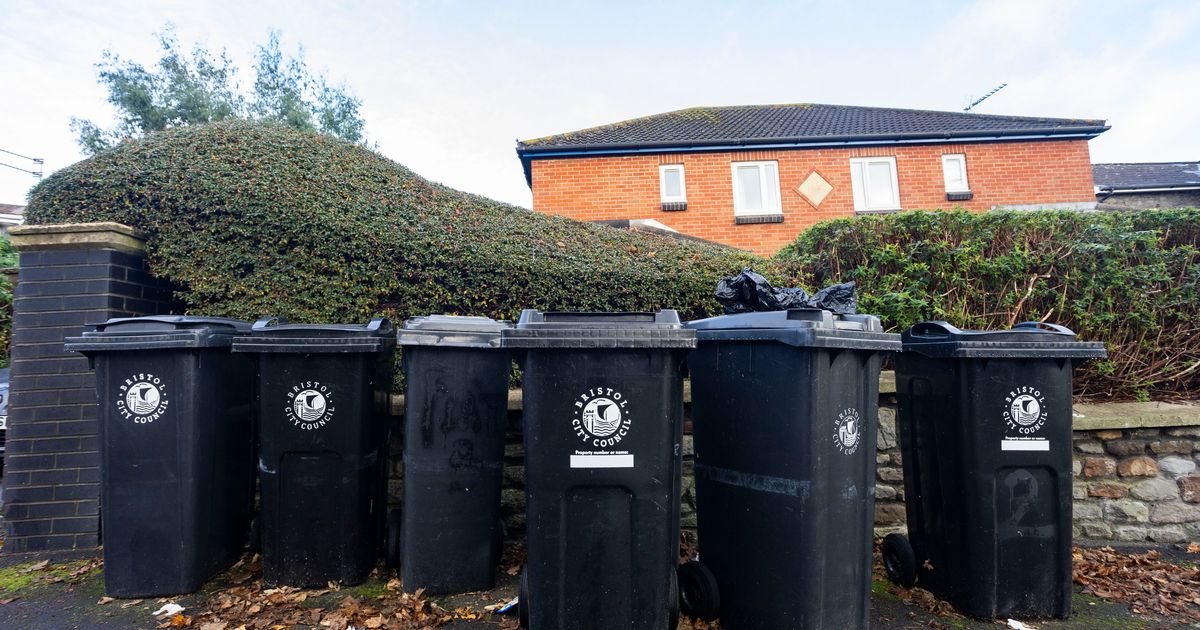Thousands of streets had overflowing bins during the worst of the disruption Black bins in Bristol (file image)(Image: © SWNS)
Black bins in Bristol (file image)(Image: © SWNS)
After a year of disruption and missed collections, Bristol’s waste and recycling services appear to be back on track thanks to a series of operational overhauls and strategic investments.
A report prepared ahead of a Bristol City Council meeting next week outlined how the city has recovered from a chaotic period following the restructuring of recycling routes in October 2023. The changes, introduced by Bristol Waste Company (BWC), aimed to save £250,000 by removing two recycling rounds.
However, the move backfired. “This service change had a significant negative impact on the refuse and recycling service with a large increase in the number of dropped roads and missed collections,” the report by the Environment and Sustainability Policy Committee stated.
By December 2024, nearly 4,500 roads were going uncollected each week—the worst performance in the service’s history. Subsequent measures to stabilise the service, including an evening collection round, saw partial success but were hampered by Christmas illness outbreaks, operational issues at depots, and the seasonal surge in recycling volumes.
The turning point came in January 2025, when the council made the decision to suspend recycling collections on Friday, January 9. This “reset” enabled BWC to clear backlogs.
According to the report: “This proved very successful and led to an immediate reduction in the number of dropped roads by the recycling service.” By March and April 2025, dropped road averages had fallen to 712 for refuse and just 228 for recycling—a dramatic reduction of 77% and 85% respectively.
BWC’s improvements stem from a multi-pronged approach. Key actions included appointing new senior management, redesigning collection routes and improving the productivity of transfer stations. Notably, planning permission has been extended to allow for 24-hour waste processing to mitigate future downtime.
Infrastructure improvements are also under way. A new bulking facility at Avonmouth is nearing completion, which is expected to “reduce downtime of collection fleets and improve resilience for northern wards.” Meanwhile, the older Albert Road Depot is undergoing a deep service upgrade to minimise breakdowns.
Long-term plans include replacing the ageing vehicle fleet by 2027–28 and reviewing narrow access routes—frequent culprits behind dropped collections. The council is also exploring Traffic Regulation Orders to ease vehicle access to problematic streets.
Despite recent improvements, the report cautions that risks remain. Vehicle availability, excessive cardboard volumes and narrow streets continue to pose challenges. It states: “Whilst the service is improving there remains several operational risks… that may impact on service delivery.”
Financially, the council is looking to reduce waste collection costs by £500,000 annually in both 2026–27 and 2027–28, though the current improvements are not yet tied to specific budget savings. A proposal to switch to collecting black bins every four weeks was dropped earlier this year after a massive backlash.
For now, the city’s waste services are functioning at what the report calls “an acceptable level”. The committee has noted the report but made no formal decisions, as it was submitted for information only. Residents can expect ongoing monitoring and continued enhancements as Bristol aims to meet its long-term waste reduction goals under the 2022–27 Corporate Strategy.
The next key milestones include finalising the Avonmouth site and deciding on the replacement fleet in the coming financial year. The report is on the agenda for discussion at a meeting of the Environment and Sustainability Policy Committee, on Thursday, May 29.
